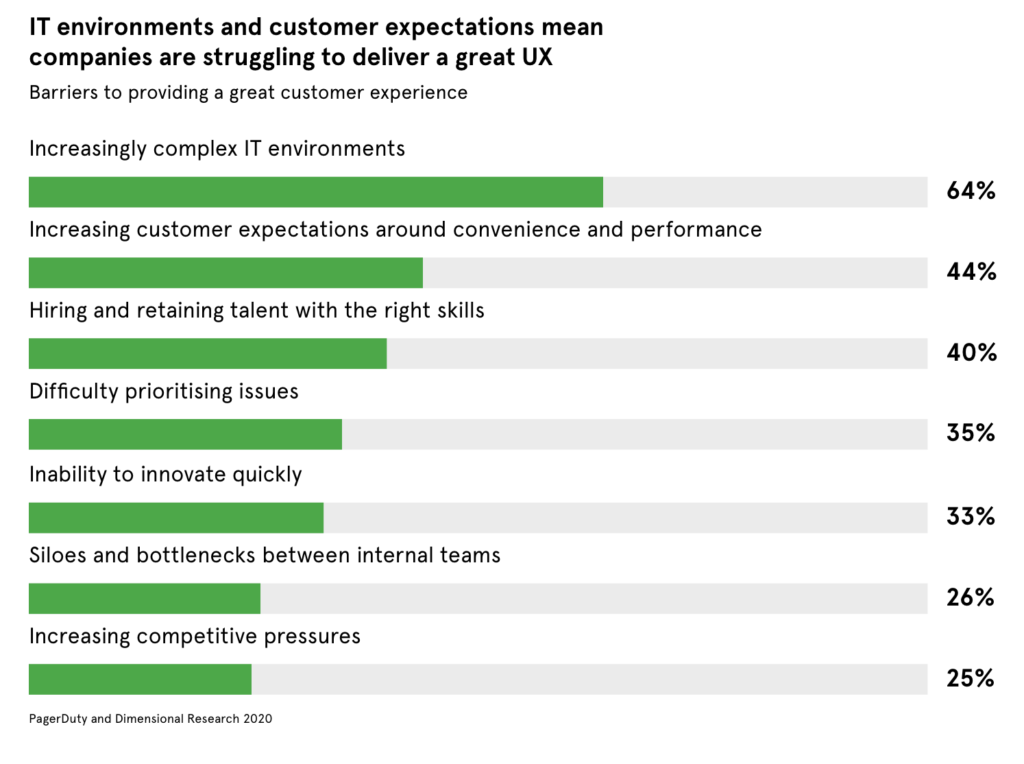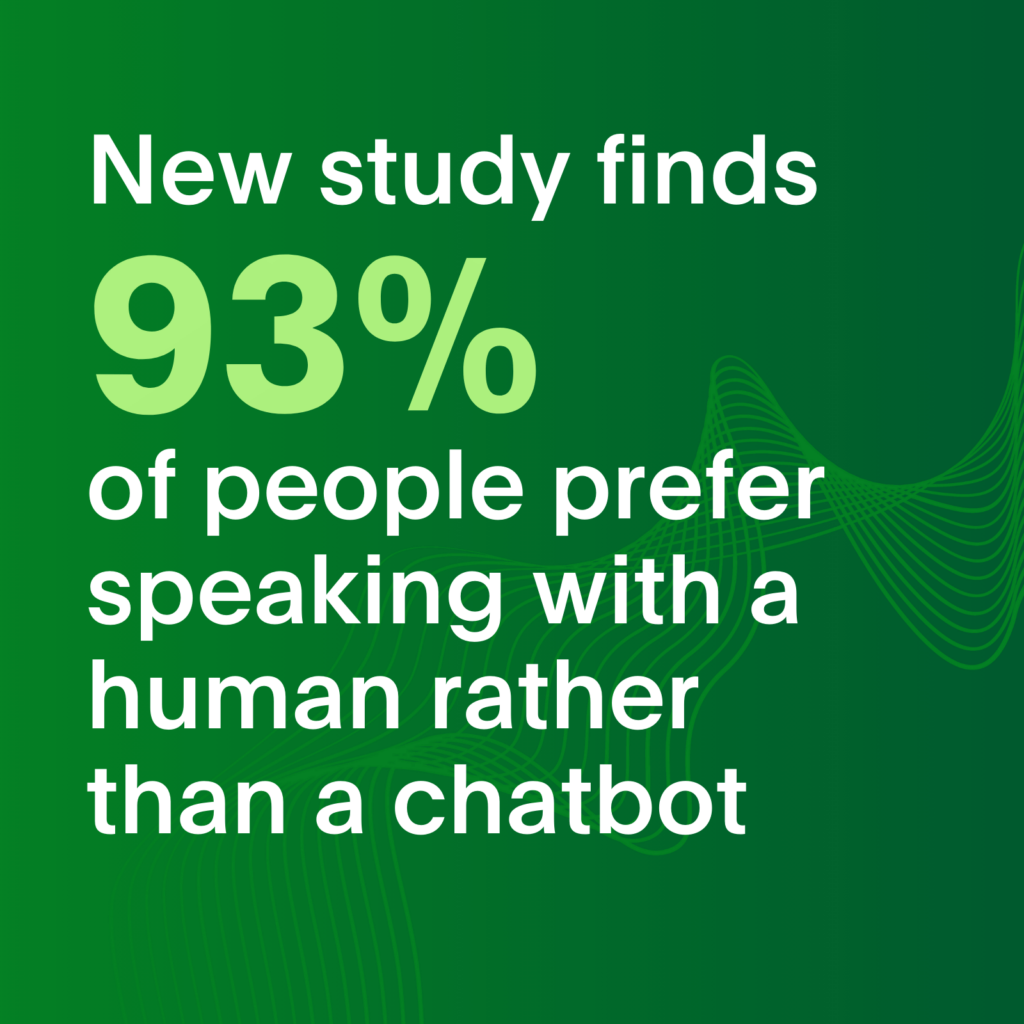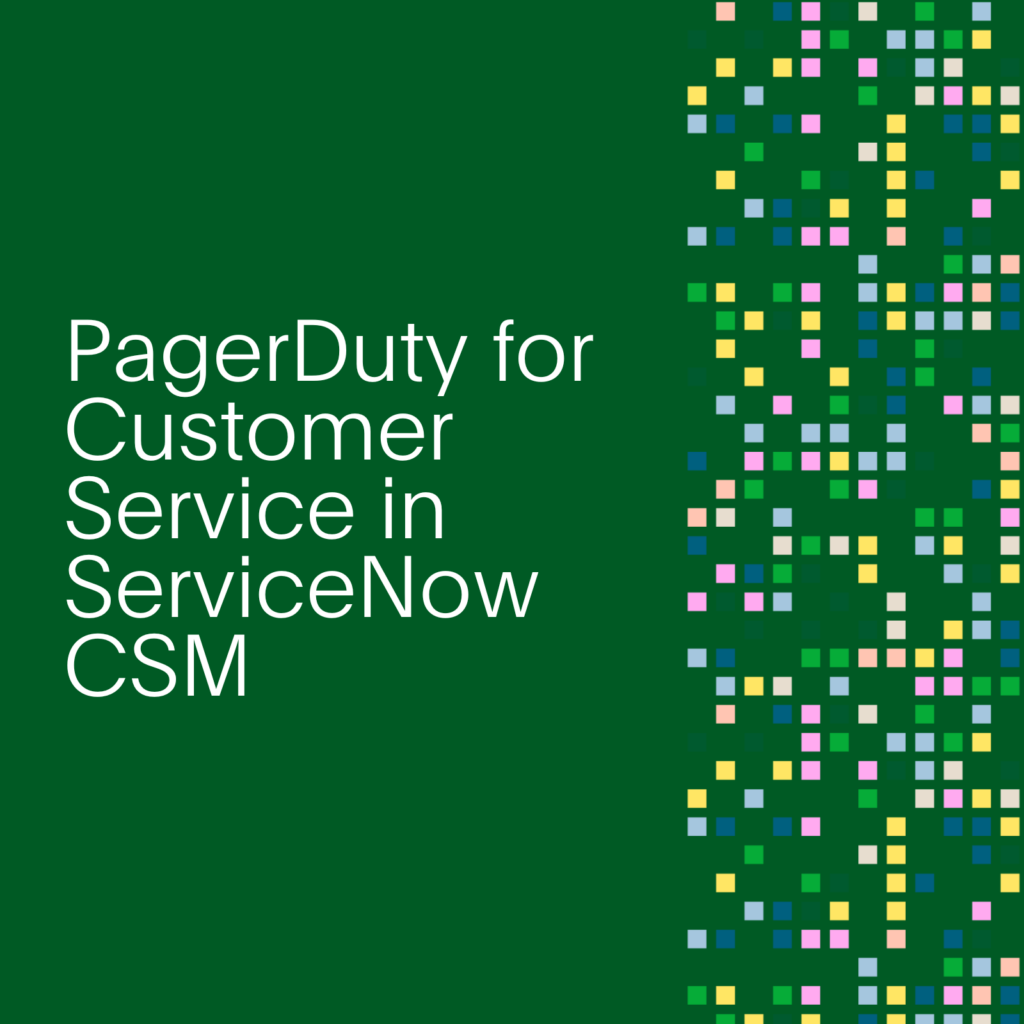- PagerDuty /
- Blog /
- Customer Service /
- Customer Experience: The Good, the Bad, and the Ugly
Blog
Customer Experience: The Good, the Bad, and the Ugly
This article was previously published by Raconteur.
Unmanageable workloads often have a knock-on effect on the customer experience (CX), and businesses can no longer afford to get this wrong.
The expectation of an always-on experience and increasingly saturated markets can mean a poor experience will send customers elsewhere. And yet, many businesses are struggling to deliver the great customer experience that is demanded. So what can organizations who are at risk of getting left behind learn from those getting it right?
Supercharging Customer Service With Artificial Intelligence
Artificial intelligence (AI) is transforming customer service for businesses like Telefonica, BBVA, and Sterling Bank.
Call center service is also a substantial pain point, with 45% of customers hanging up out of frustration (data from cloud services provider Maintel shows). But by adopting advanced AI, Telefonica has decreased call abandonment by 44%.
Meanwhile for Sterling Bank, using AI has halved the number of calls coming in, using a “cognitive customer service agent” to handle many inquiries.
“It’s a cut above a basic chatbot,” argues Faisal Abbasi, Managing Director of Amelia, an AI platform that sells itself on its conversational capabilities.
“The decision tree format of chatbots means their capabilities are severely limited. With straightforward, unsophisticated functionality, they typically provide basic responses. They’re incapable of true problem solving,” shared Abbasi.
“This isn’t true of digital customer service agents leveraging artificial intelligence. Advanced learning capabilities enable them to understand context and natural language, so they can independently execute tasks,” explained Abbasi.
Going to the Next Level With Loyalty
Loyalty card apathy occurs thanks to a lack of relevance and value, with around £2 billion of loyalty currency going unspent. That’s according to Club Rakuten, a loyalty programme recently launched by the Japanese tech giant in the UK. It takes a multi-brand approach, with 250 partnerships with the likes of Booking.com, LEGO and ASOS, and raises the stakes in generosity, offering up to 25 points for every £1 spent.
“But it’s not just about quantity,” said Tim Birchinall, Club Rakuten’s Head of Membership for Europe. “The ambition to acquire customers at low costs and retain them through personalised and engaging communications is more challenging than ever. Brands without links to ecosystems, partnership media channels, and depth of data will be at greater risk of failure,” he shared.

Lagging Behind in Tech Savviness
According to a recent survey, while 43% of UK consumers are buying more online than they did before the COVID-19 pandemic, marketers in Britain are falling behind the global curve in adopting content management systems, marketing automation, and development tools. Some 37% are hindered by a shortage of AI and machine learning skills.
One brand bucking this trend is TSB, which adopted cloud-based technologies like Adobe Experience Platform and Microsoft Dynamics to improve the action of real-time insights—a need intensified by COVID-19.

“COVID-19 accelerated our need to digitalise our operations, as we could foresee an even greater behavioural shift in our customers needing to access services remotely. Already over 90% of transactions we process are through digital or automated channels and there are more plans to be executed,” shared TSB Chief Marketing Officer Pete Markey.
Poor management of customer reviews
Some 62% of consumers trust online reviews more than expert opinions, according to Gartner-owned software marketplace Capterra, yet many businesses are still on the backfoot.
Per Capterra data, as many as 44% of UK businesses keep track of online reviews with a manual method like a spreadsheet, causing frustrations such as not being able to react to and promote them properly.
The impact of not properly managing customer reviews can impact brand image, as Capterra insights also show only 7% of customers trust a company with less than five reviews, yet 39% expect a response.
“Companies can use reviews to learn more about their customers, identify product gaps, build promotional and social media campaigns, and run competitor analysis,” explained Ryan Kent, Director of Reviews Operations for Gartner Digital Markets.
Forgetting to be Human
Kin + Carta Connect’s Brand Resilience Index 2020 analysed 33 top British brands, rating them one to five against individual factors of agility, maturity, responsibility and humanity, to produce an overall CX rating.
The index found humanity–forming emotional connections with audiences–has been neglected as businesses rapidly adapt in the face of COVID-19, with factors including accessibility, inclusivity, and tone of voice across digital channels, which hinders user experiences for a third of businesses that were examined.
“However, businesses analysed performed well in agility, which is understandable given the current climate,” said Claire Robinson, Customer Experience Director at Kin + Carta Connect.
But as purpose prevails over profit, Robinson wonders whether both humanity and responsibility will become strategic drivers for brand resilience in the coming year.


